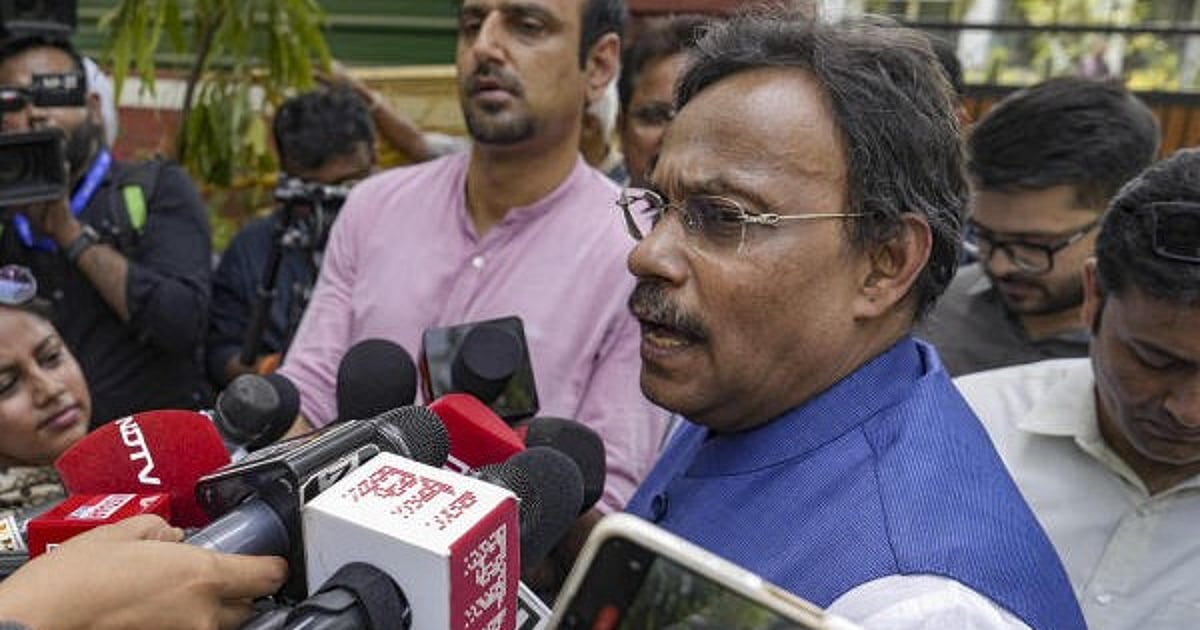 |
|
The recent allegations of bribery against BJP leader Vinod Tawde in the context of the upcoming Maharashtra Assembly Polls 2024 have sparked a heated exchange between the BJP and the Maha Vikas Aghadi (MVA). The BJP vehemently denies the accusations, characterizing them as a 'last desperate ditch attempt' by the MVA to gain political traction. The core of the controversy revolves around an alleged Rs 5 crore bribe offered to Tawde. The BJP's response, articulated by a spokesperson, focuses heavily on the lack of concrete evidence to support the claim. The assertion that the alleged transaction took place in a public hotel, thereby potentially captured on CCTV, is central to their defense. The absence of visual confirmation of such a large sum of money, they argue, renders the allegation inherently dubious and illogical. This strategy highlights a key aspect of political maneuvering: the importance of public perception and the power of seemingly irrefutable evidence, or its stark absence.
The BJP's defense further employs a classic political tactic: shifting the focus to the accuser's past. By invoking the Harshad Mehta scandal of 1993, a period of Congress rule, the BJP aims to draw a parallel and suggest hypocrisy. The argument suggests that if the Congress was capable of significant financial irregularities in the past, their current accusations are less credible. The comparison emphasizes the scale of the alleged past transgressions, highlighting the difficulties in tracking and proving such events, even with comparatively smaller amounts of money given the currency denominations at the time. This tactic aims to undermine the credibility of the accusation by highlighting a perceived double standard and past misconduct. This strategic shift in focus deflects attention from the current allegation and plants seeds of doubt in the minds of the electorate.
The absence of physical evidence – the missing ‘sack’ of Rs 5 crore – is repeatedly underscored by the BJP as a crucial flaw in the opposition's case. This lack of tangible proof is presented as irrefutable evidence against the credibility of the accusation. The rhetorical emphasis on the ‘noise’ and ‘baseless accusations’ underscores the BJP’s conviction in their own innocence and portrays the opposition’s actions as mere political posturing. The strategic use of language aims to discredit the MVA and bolster public perception of BJP's integrity. This points to a broader strategy of managing public opinion in the lead up to the elections, where countering narratives and controlling information flow play crucial roles. The repeated emphasis on the absence of proof underscores a crucial aspect of this kind of political dispute; accusations without verifiable evidence often lack the weight to significantly impact public perception, especially in highly polarized environments.
The larger context of the Maharashtra Assembly Polls 2024 shapes the intensity of this exchange. Both the BJP and the MVA are employing various strategies to gain a competitive edge. The allegations of bribery represent a significant blow to the BJP's reputation, but their response is calculated to minimize the damage. The utilization of counter-accusations and the emphasis on the lack of evidence underscores the high-stakes nature of the upcoming elections. Political analysts suggest this exchange is indicative of the fierce competition and the extensive use of propaganda and counter-propaganda during election campaigns. This incident highlights the crucial role that media coverage and public opinion will play in influencing the results of the upcoming election. The effective use of public relations and strategic communication is becoming increasingly essential for political success in today's climate.
